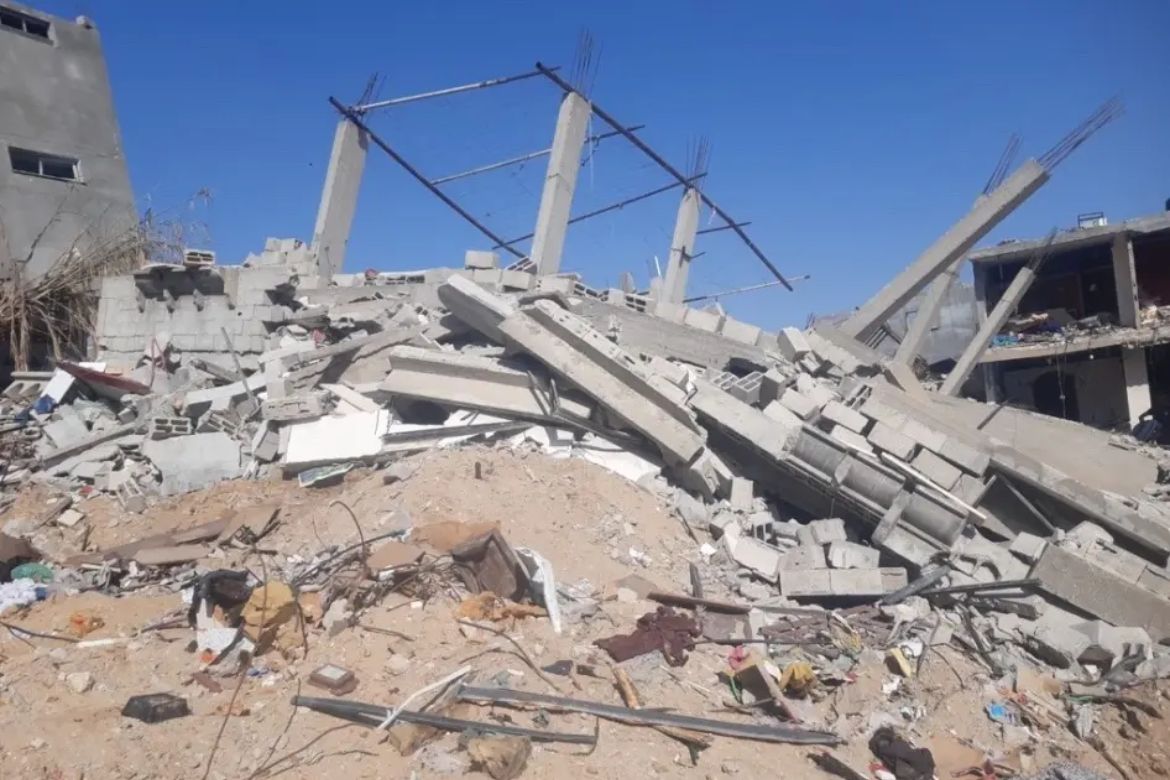Amid Gaza’s ruins and relentless airstrikes, one fragile institution continues to flicker against the darkness: a barely functioning eye hospital—the only one of its kind still standing. Once a sanctuary for healing, it now symbolizes a crisis that has robbed thousands not only of their sight but also of their futures.
Once serving thousands with conditions ranging from cataracts to diabetic complications, Gaza’s eye hospitals played a vital role in preserving vision and dignity. Today, only one remains partially operational, its corridors echoing with the cries of those waiting, hoping, and often, leaving unseen.
A Health System on the Verge of Collapse
Gaza’s healthcare system was already under strain from years of blockade and limited access to medical equipment. The war that began in October 2023 has dismantled what little remained. Targeted bombings have turned hospitals into rubble. Medical staff have been killed, imprisoned, or forced to flee. Critical supplies, from anesthesia to surgical instruments, are nearly exhausted.
The sole remaining Eye Hospital is a shell of what it once was. Electricity is scarce. Surgeries are routinely postponed. Children blinded by shrapnel or collapsed buildings wait for help that may never come. With only three worn surgical scissors left in the facility, doctors are forced to reuse tools across procedures—a heartbreaking breach of safety that underscores the depth of the crisis.
Eyes That Cannot See, and Stories That Must Be Heard
Each case of blindness carries more than a diagnosis—it holds a human story.
Ten-year-olds blinded during airstrikes. Mothers who will never again see their children’s faces. Elderly patients who can no longer access treatment for preventable conditions. And fathers, like Mohammed Al Balawi, whose world went dark when an Israeli missile hit his neighbour’s home in Jabalia Camp last year.
“The last thing I saw was the missile coming down,” he says. “Then everything turned black.”
By the time medical help reached him, his retinas were beyond repair. “If there had been equipment, maybe they could have saved my sight,” Mohammed explains. “But there was nothing.”
He now lives in complete darkness, separated from the faces of his son and daughter. “I just want to see my children again.”
A War on Vision, A Crisis for Humanity
According to Gaza’s health ministry, over 1,500 Palestinians have lost their eyesight since the war began. Another 4,000 face blindness if care remains inaccessible.
“We are seeing an explosion in eye trauma,” says Dr Eyad Abu Karsh, an ophthalmologist at the hospital. “Missiles create pressure waves that damage vision even without direct impact.”
Children like Fatine Al Ghussein, who lost an eye in a strike, represent a generation that may grow up not just blind—but forgotten.
The Gulf’s Role: A Call for Urgent Intervention
This is more than a healthcare crisis—it is a moral emergency.
Gaza’s health ministry has appealed for ophthalmic supplies, diagnostic equipment, and urgent international support. But with Israel’s blockade—tightened since March 2—aid barely trickles in. The hospital’s staff, already depleted, continue to serve as the last line of defence for thousands of patients facing irreversible blindness.
The Gulf region, with its legacy of humanitarian leadership, must once again rise to the moment. Coordinated relief, strategic funding, and medical diplomacy are essential. The region has the capacity—not only to provide equipment—but to offer hope.
“We’re fighting to save vision,” Dr Abu Karsh says. “Because when people lose their sight here, they lose their last connection to the world.”
A Final Plea
For families like the Al Balawis, hope lies beyond Gaza. Advanced treatment abroad may restore Mohammed’s vision. But borders are closed. Permissions are denied. And time is running out.
War has left Gaza with one eye hospital—barely alive, yet still refusing to die. It is a testament to what has been lost and a fragile symbol of what could still be saved.
In a region often divided by politics, let this be a moment of unity—where we do not turn a blind eye.



